Disclosure: Meeple Mountain received a free copy of this product in exchange for an honest, unbiased review. This review is not intended to be an endorsement.
For a nanogame, Orchard: 9 Card Solitaire has received mega-recognition. Beginning as an entry by Mark Tuck in the 2018 9-Card Nanogame Print and Play Design , it has gone on to win that contest and to also win Board Game Geek’s 2018 Golden Geek Award for Print and Play Games. Now, it’s soon to be officially published by Side Room Games. That’s mega-awesome for a design that had to fit an interestingly restrictive set of critiera: 9 standard sized cards and up to 18 other components, along with a logo.
Read further to learn how Orchard followed those restrictions in creating a contest-winning game that you may just want to pick up for a fruitful day.
Components
Orchard has 18 cards. Wait, what?! Yes, Orchard has 18 cards. The original contest restricted games to 9 cards but allowed the games to utilize both sides of the cards. Mr. Tuck’s initial design was only 9 faces but he expanded to use both sides during the contest to give players more variety between games. Once the contest was over, designers were free to do as they chose. For Orchard, that meant dividing the 9 cards into 18 separate cards with actual backs.
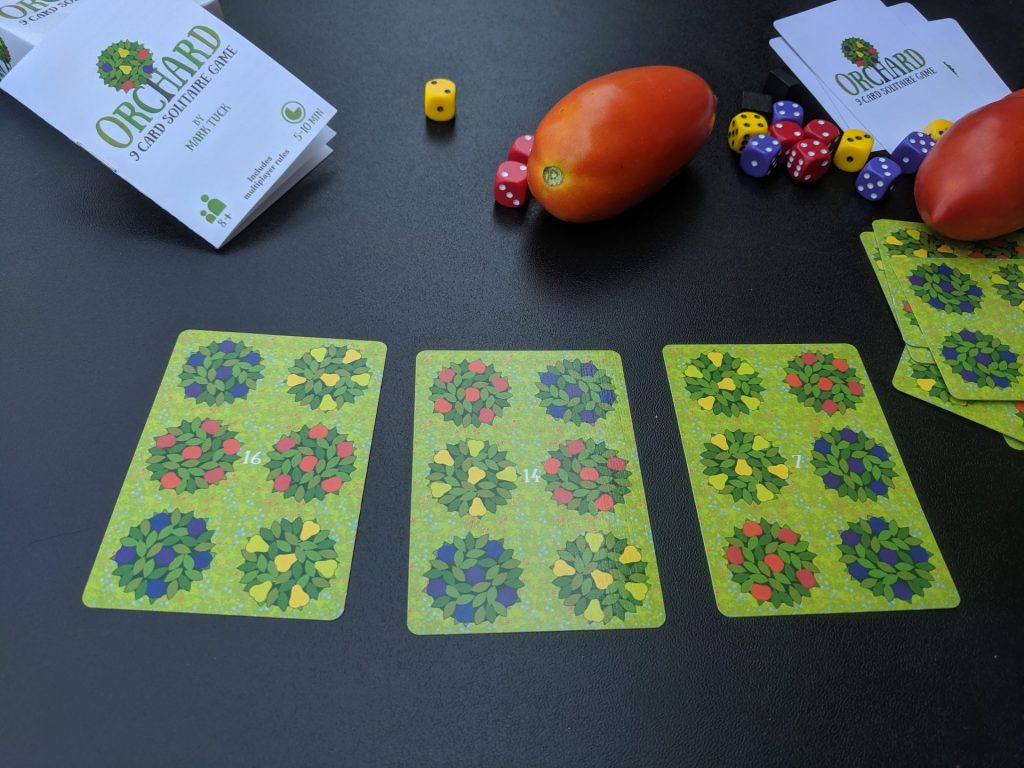
Splitting the 9 front and back cards into 18 singular cards allows for even more variety between games. Per BGG user Jim Adams, a 9 card deck provides 512 possible hands while an 18 card deck provides 48,620 possible hands! Having 18 cards also allows for a quicker second game, as only 9 cards are used at a time during the game.
The cards are arranged with simple but beautiful fruit trees: 2 each of apples, plums, and pears. Harvestable fruit on the trees are represented during the game with dice of the respective colors: red, purple, and yellow. There are 5 dice of each color along with 2 black cubes representing rotten fruit.
The only other component besides the small card tuck box is the card-sized 6-page rulebook.
A special note: this game started as a print and play and was developed further as a special custom print and play through The Game Crafter, a special web-to-print-on-demand publishing company. The copy I received was specially printed by the Game Crafter for Side Room Games, who has acquired the publishing rights to the game. Side Room Games will be running a Kickstarter for Orchard: 9 Card Solitaire and the game may be further tweaked as part of that process.
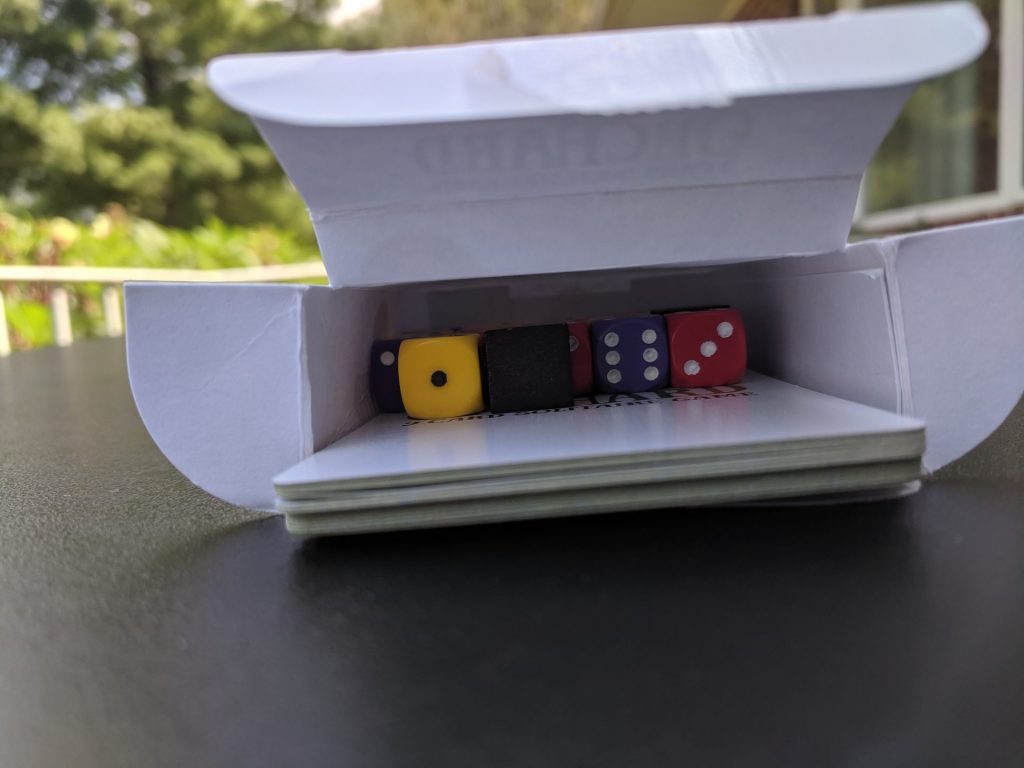
Gameplay
The objective in Orchard is to see how high you can score. There’s a scoring track listed in the rule booklet to help estimate how well you did, ranging from “Pal-tree” for less than 25 points to “Pretty Pear-fect (take a bough)” for 50 or greater points.
Setup is super simple; set the dice to the side within reach, shuffle the 18 cards and then divide them into 9 card stacks, picking one and setting the other aside to play later.
Play begins by flipping the top card of your chosen deck over onto the table, and then drawing two cards to your hand. Play proceeds by playing one of your held cards to the table so that it overlaps at least one card already in play.
Once you’ve decided how you wish to play a card, you will place a respectively colored die on each tree you overlapped with the played card. The first time you place a die on an overlapped tree, it will be placed as a 1. If you overlap the tree a second time, you will move its die to 3, and then to 6 for a third overlap. While you can still overlap the same tree a fourth time, you cannot go higher than 6. These dice represent the amount of fruit available for harvesting at the end. I like to imagine that the overlapping represents cross-pollination, though it’s not mentioned in the rulebook.
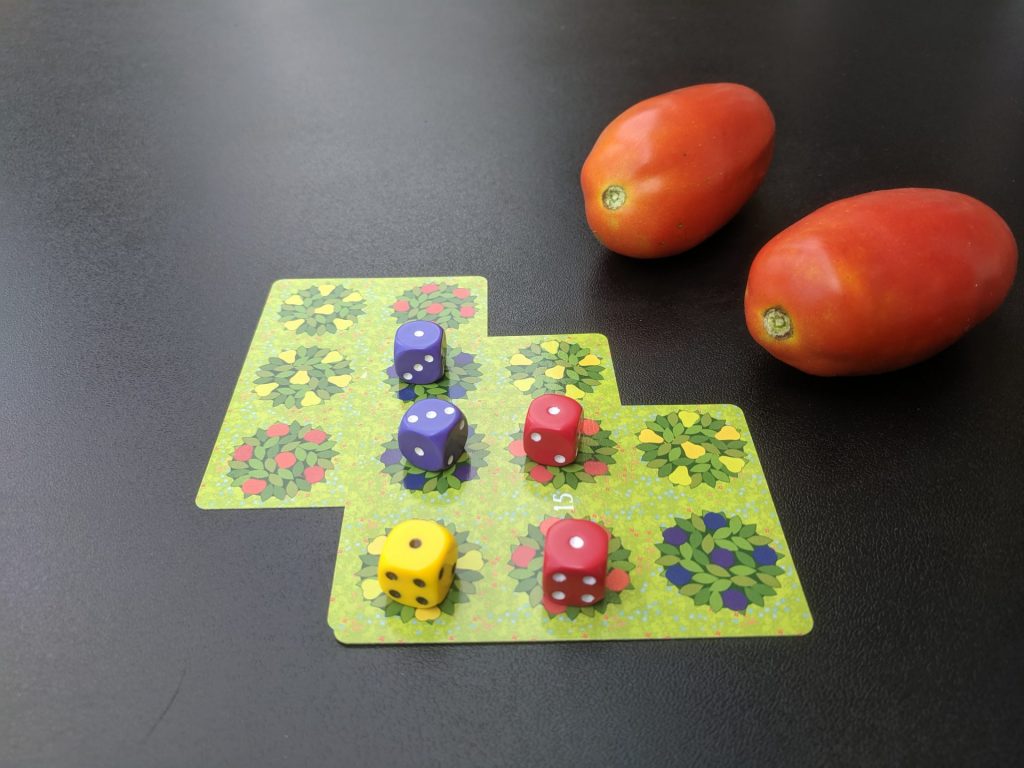
The rules for overlapping cards are that the card must overlap either 180 or 90 degrees and each overlapped tree must be of the same matching color with one exception. You are given two black cubes representing rotten fruit which can be played on non-matching overlapped spots. Thus, you may play a non-matching overlap spot for two different trees, but each rotten fruit is worth -3 points and one cannot overlap the same bad spot twice nor play more than the two non-matching spots.
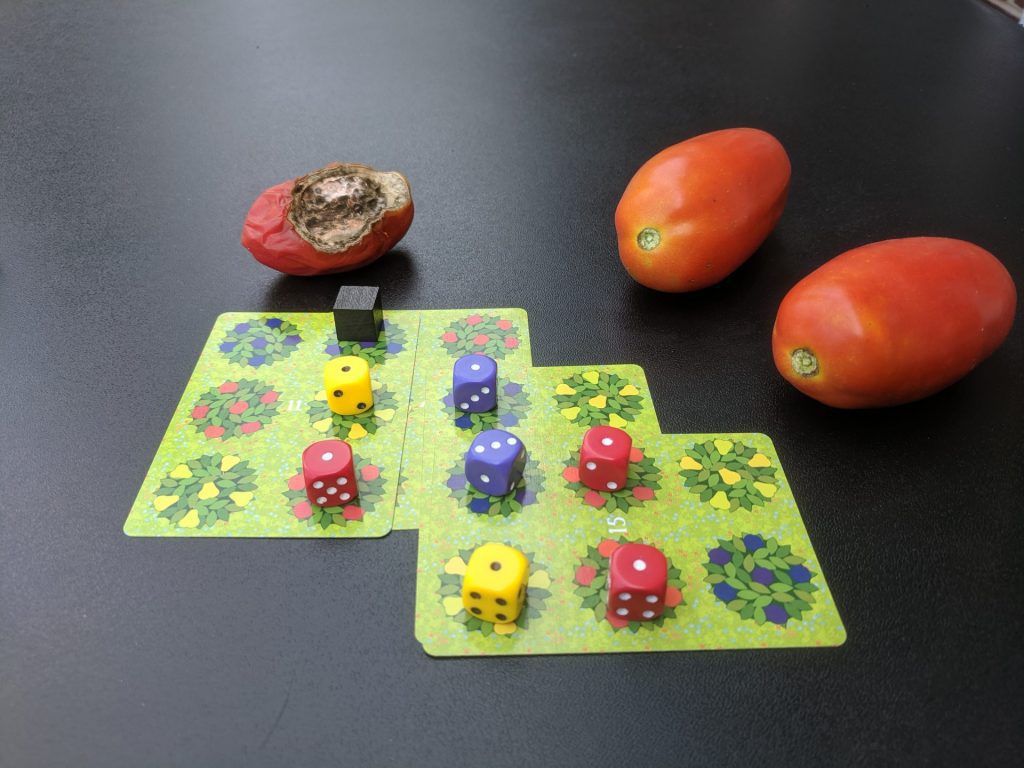
After placing all appropriate dice/cubes, you draw another card bringing your hand back to two and play again until you have played the 9th card. Tally up the numbers on the dice and that’s your score!
Now, push the dice to the side, scoop the cards out of the way, pick up the second deck of 9 cards, and play again!
There are also rules included for playing multiplayer. You’ll need a second copy of the game. As you play, one player will call out the number on the cards she draws and the other players will pull those numbered cards from their decks to play with the same draw. The rest of the game is played as normal, highest harvest wins.
Thoughts
Orchard: 9 Card Solitaire is an enjoyable game that shares a few characteristics with traditional games of solitaire while improving on others. Like the traditional games, it’s addictive. While writing this review and contemplating the various aspects, I just had to step away from writing to try one more time to beat my highest score and break past 39. I DID IT, I finally scored 41! Five to ten minutes of play and I’m back to writing a review.
Unlike a game of Klondike on your laptop, you can’t completely shut down your brain and work on auto-pilot. With only 9 cards to play, Orchard does demand a bit of thought into each play. To me, that makes it more interesting than a game like Klondike, but I am aware that people often play games of solitaire to give their brains a break.
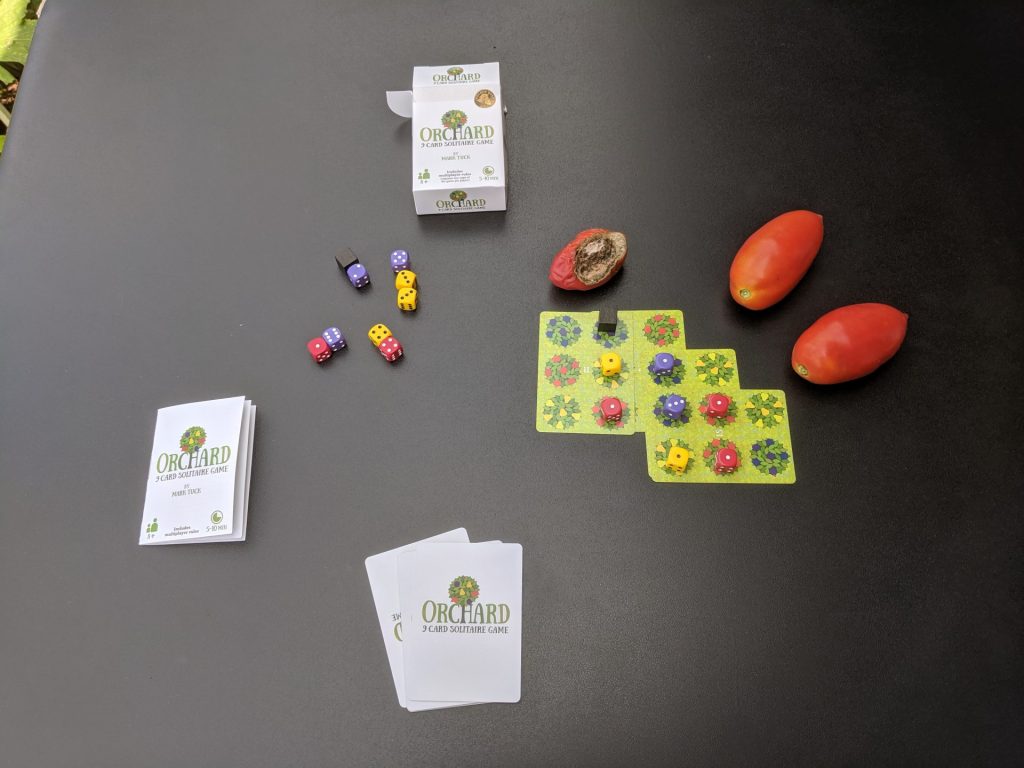
Another shared characteristic is that Orchard’s end game result is somewhat determined and severely restricted by the order of the deck. Each decision you make will definitely have an impact, but ultimately, all the best plays you can make may not break a specific point barrier just due to that draw. It can make it difficult to know whether you’re playing well against a bad draw or playing poorly with a great draw. That said, there’s a lot of potential combinations with the 18 cards so you’ll never have a shortage of available attempts.
Ultimately, Orchard plays a bit quicker than other solitaire games because there’s only ever 8 turns to a game. It takes as long to play as it takes you to decide where to place your card.
If you enjoy playing solitaire and would like to upgrade to a game with fewer moves but more puzzling choices, you should harvest Orchard: 9 Card Solitaire immediately.


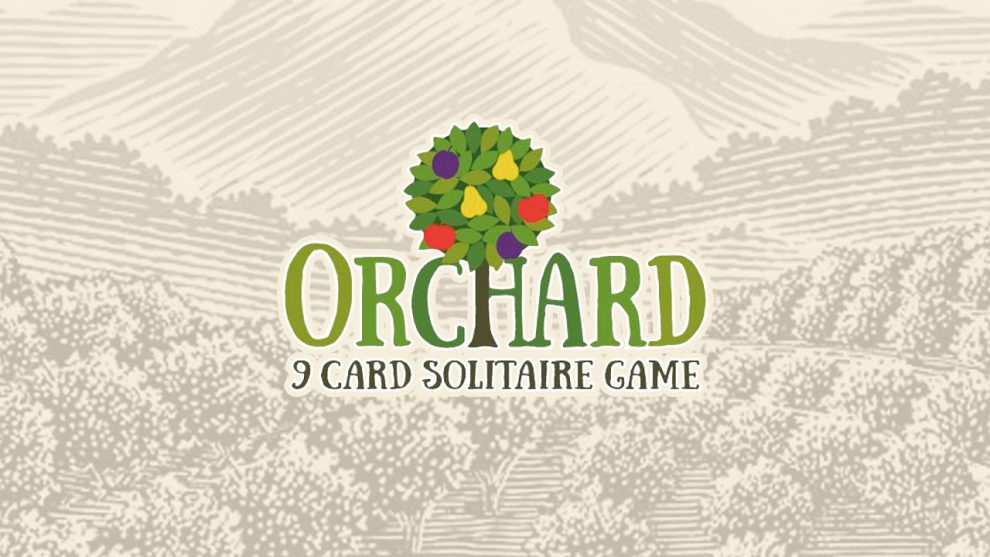








Add Comment